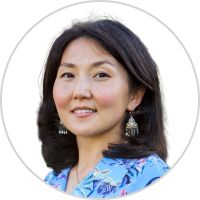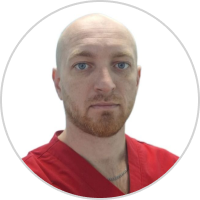
Oncofocus
Oncofocus is an NGS-based assay that includes a panel of genes concurred for the clinical use of approved targeted drugs and drugs from prospective clinical trials.
Alterations in these genes lead to tumor development and are used as diagnostic, prognostic, and predictive cancer markers.
"First Genetics Lab" performs testing using the high‑throughput sequencing system named "F‑Genetics" and reagents for high‑throughput next generation sequencing (NGS) of genes associated with human cancer genesis, that are registered as medical devices (Federal Service for Surveillance in Healthcare: РЗН 2020/10521, РЗН 2022/16970)
Oncofocus assay consists of 52 genes
- Hotspots (SNV/InDels)
- Gene copy number variation (CNV)
- Chromosomal aberrations (Gene fusions)
Indications for Oncofocus testing
For patients diagnosed with cancer for:
- Therapy selection
- Therapy monitoring and correction if the cancer recurrence occurs
Accurate and on-time cancer diagnostics and the “right” personalized therapy selection are crucial for cancer patients and are a primary direction for national oncology.
NGS can simultaneously read
hundreds of millions of short DNA sequences
all types of mutations, including structural rearrangements, which distinguishes it favorably from PCR analysis and sequencing by Sanger
NGS Data Processing
makes it possible to find differences in the tumor DNA sequence from the reference genomic sequence
The revealed differences are called nucleotide sequence variants or:
Nucleotide variants
- germinal (congenital — pathogenic, or polymorphisms)
- сtumor-specific somatic mutations
How exactly does Next Generation Sequencing (NGS) work?
NGS can simultaneously read hundreds of millions of short sequences of DNA and detect all types of mutations, including

full-length genes

single nucleotide variants, insertions/deletions (SNV/indels)

copy number variations (CNV)

chromosomal aberrations (gene fusions)
These «reads» contain a large amount of information about the genetic sequence. The following bioinformatic data analysis finds differences between the tumor DNA sequence and the reference genomic («golden standard»). NGS data analysis is time-consuming and requires specific software and various bioinformatics algorithms.
The massive list of detected variants is then «interpreted» by comparing the results with databases that list known or newly seen variants associated with various cancers. Interpretation and sequencing are complex and time-consuming because it involves the work of many specialists to determine the clinical and therapeutic significance of each detected variant.
Advantages
- High sensitivity and specificity
- Fast turnaround time
- Simultaneous detection of all types of mutations, including chromosomal aberrations
- Minimum requirements for sample quantity and quality
- Shorter testing times
How to request the Oncofocus test?
Download and fill out the informed consent form
A courier will collect histological material and take it to the laboratory free of charge.
First Genetics Laboratory
Specialists
Years of experience in genetics, laboratory diagnostics and bioinformatics
Confidentiality
All data is strictly confidential and cannot be passed on to third parties
Time frame
Results ready in a short time
Security
Extensive control at each stage of testing
No delivery fees
Free delivery of biomaterial across Russia
Charities
Email info@f-genetics.com for information


